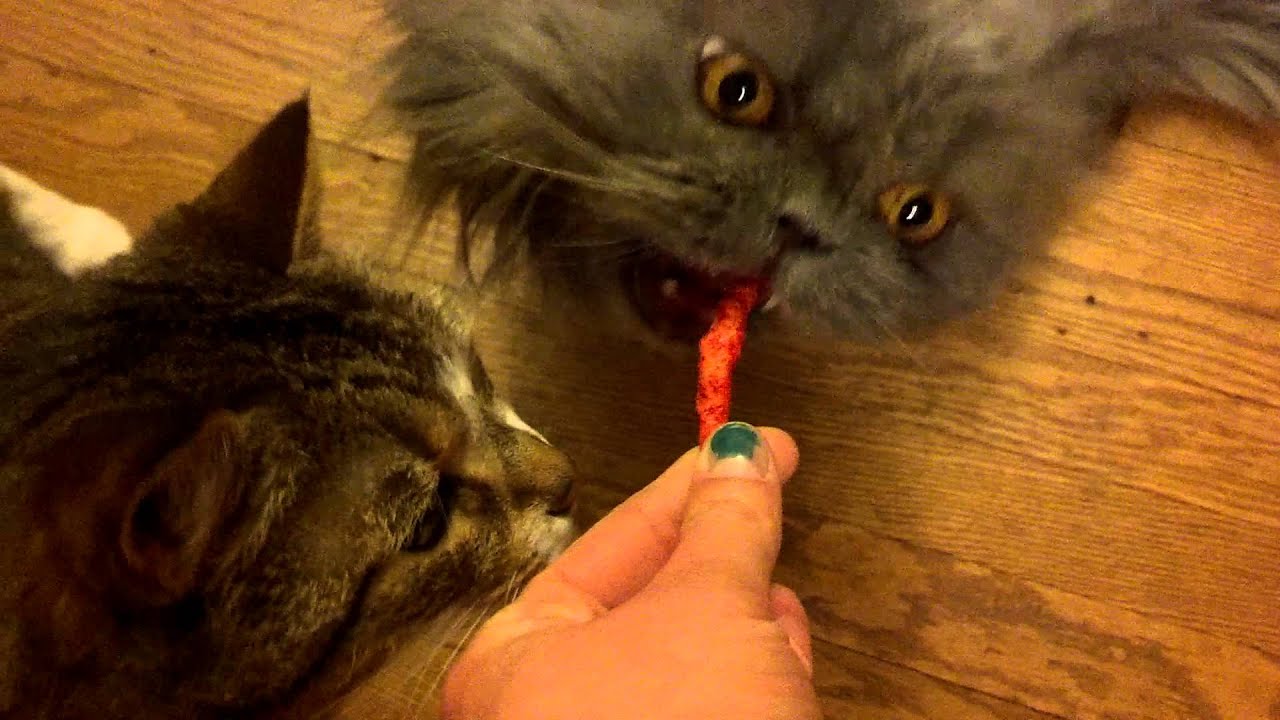Hot Cheetos have become a popular snack among humans, but can our feline friends indulge in this fiery treat as well? As cat owners, it’s important to be aware of what foods are safe for our pets to consume. In this article, we will explore whether cats can eat hot Cheetos and discuss the potential risks and considerations associated with feeding them to our furry companions.

Can Cats Safely Consume Hot Cheetos?
While cats are known for their curious nature and willingness to try new things, hot Cheetos should not be on their menu. Cats have specific dietary requirements that differ from humans, and certain foods can be harmful to their health. Hot Cheetos fall into this category due to their high salt, spice, and artificial flavor content.
The Risks of Feeding Hot Cheetos to Cats
-
Digestive Issues: Hot Cheetos are loaded with artificial flavors, preservatives, and spices that can upset a cat’s delicate digestive system. Consuming these snacks can lead to vomiting, diarrhea, or even more severe gastrointestinal issues.
-
Salt Intoxication: Hot Cheetos are notorious for their high salt content. Cats have a low tolerance for sodium, and excessive salt intake can lead to salt intoxication. Symptoms of salt intoxication in cats include excessive thirst, increased urination, lethargy, and even seizures.
-
Spices and Artificial Flavors: The spices and artificial flavors found in hot Cheetos can be overwhelming for cats. These ingredients can cause irritation to their sensitive taste buds and may even lead to allergic reactions.
-
Obesity and Pancreatitis: Hot Cheetos are high in calories and unhealthy fats. Feeding these snacks to your cat regularly can contribute to weight gain and increase the risk of obesity. Additionally, the high fat content can trigger pancreatitis, a painful inflammation of the pancreas.
Alternatives to Hot Cheetos for Cats
While hot Cheetos are off-limits for cats, there are plenty of safe and healthy alternatives that you can offer as treats. Here are a few options:
-
Cat-Specific Treats: Opt for treats specifically formulated for cats. These treats are designed to meet their nutritional needs and are a safer option compared to human snacks.
-
Cooked Meat: Cats are obligate carnivores, and cooked meat can be a great source of protein for them. Offer small, bite-sized pieces of cooked chicken, turkey, or fish as a special treat.
-
Catnip: Many cats enjoy the effects of catnip. Offer catnip-infused toys or sprinkle dried catnip on scratching posts to provide a safe and enjoyable experience for your feline friend.
Conclusion
In conclusion, hot Cheetos should never be fed to cats. These snacks contain ingredients that can be harmful to their health, including excessive salt, spices, and artificial flavors. It’s crucial to prioritize your cat’s well-being by providing them with a balanced and appropriate diet. Opt for cat-specific treats or offer cooked meat as a safe alternative. Remember, when it comes to your cat’s diet, it’s always better to be safe than sorry.
FAQs
-
Can cats have a small taste of hot Cheetos?
It is best to avoid giving cats any amount of hot Cheetos. Even a small taste can lead to digestive issues and other health problems. -
What should I do if my cat accidentally eats hot Cheetos?
If your cat accidentally consumes hot Cheetos, monitor them closely for any signs of discomfort or illness. If symptoms persist or worsen, contact your veterinarian for guidance. -
Are there any spicy foods that cats can eat?
Cats have a different tolerance for spices compared to humans. It is generally recommended to avoid feeding cats spicy foods altogether. -
Can hot Cheetos cause long-term health issues in cats?
Feeding hot Cheetos to cats regularly can contribute to long-term health issues such as obesity, pancreatitis, and gastrointestinal problems. It is best to avoid these snacks entirely. -
What are the signs of salt intoxication in cats?
Signs of salt intoxication in cats include excessive thirst, increased urination, lethargy, and potential seizures. If you suspect salt intoxication, seek veterinary assistance immediately.

